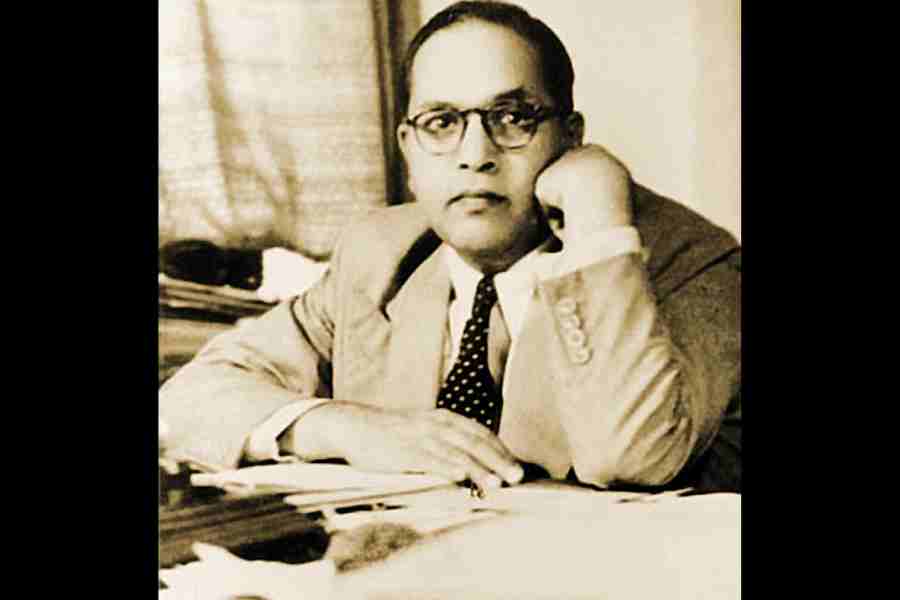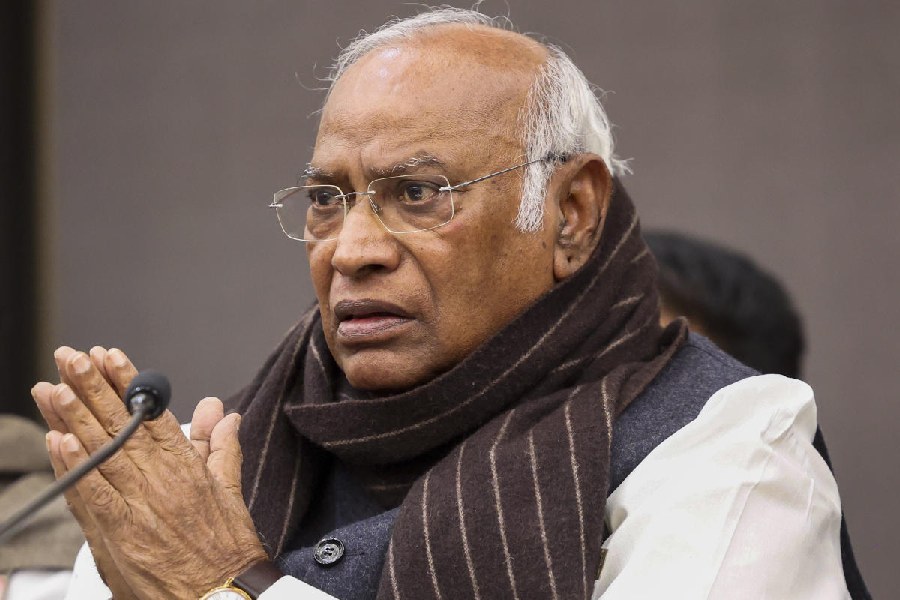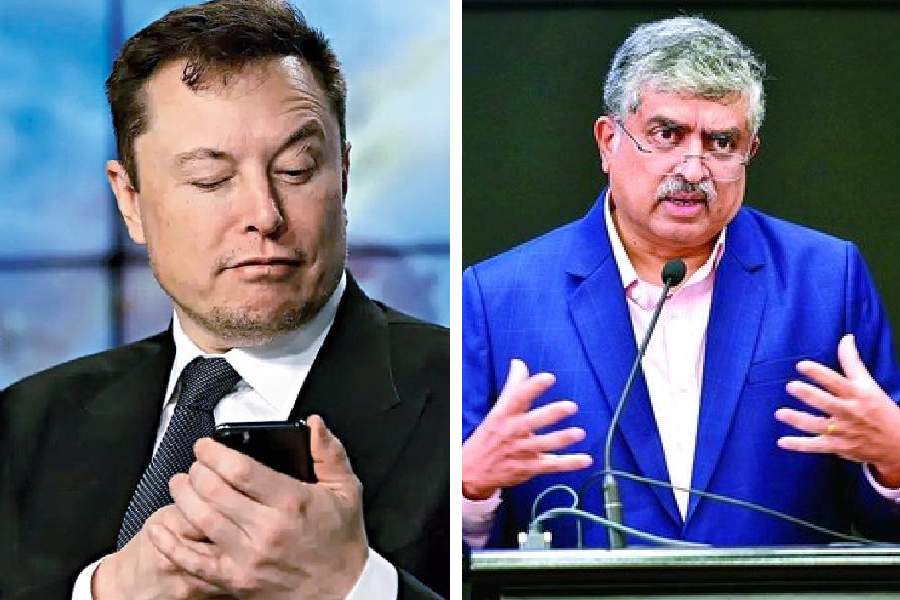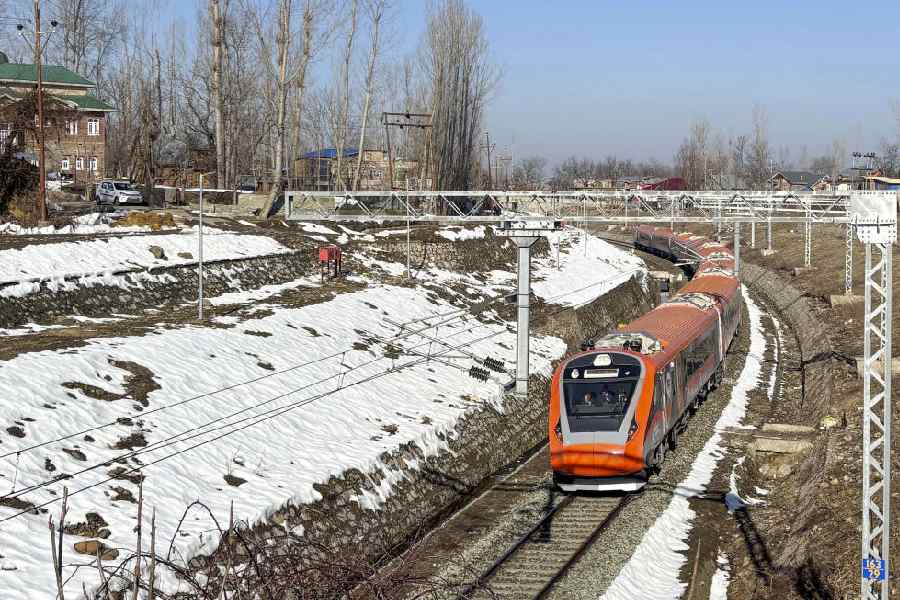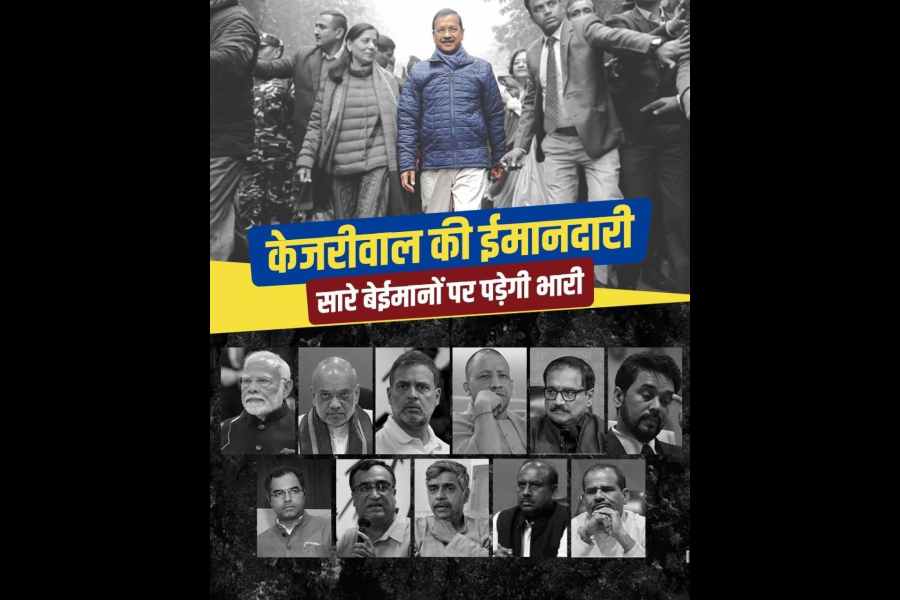“Indeed, if I may say so, if things go wrong under the new Constitution, the reason will not be that we had a bad Constitution. What we will have to say is, that Man was vile.” — B.R. Ambedkar speaking to the Constituent Assembly of India, November 1948
The Indian Constitution came into force on January 26, 1950. This weekend thus marks the 75th anniversary of that epochal event. The anniversary may, for the politicians currently in power, be an occasion for pomp and show, for a display of boastfulness and self-regard. I wish to temper the mood by recalling some warnings issued shortly before the Constitution was adopted by the law minister and chairman of the Drafting Committee, Dr B.R. Ambedkar.
In the three years that the Constitution’s principles and precepts were debated, Ambedkar made many important interventions in the Constituent Assembly. He also made two quite remarkable speeches, one on November 4, 1948, while presenting the Draft Constitution, and the second a little over a year later, when the final document was presented to the Assembly.
Of what he said on the latter occasion, one passage is fairly well-known, but bears repeating nonetheless. This dealt with the Indian penchant for hero-worship. Ambedkar asked his compatriots “to observe the caution which John Stuart Mill has given to all who are interested in the maintenance of democracy, namely, not ‘to lay their liberties at the feet of even a great man, or to trust him with powers which enable him to subvert their institutions’.”
Ambedkar continued: “This caution is far more necessary in the case of India than in the case of any other country. Bhakti or what may be called the path of devotion or hero-worship, plays a part in its politics unequalled in magnitude by the part it plays in the politics of any other country in the world.” He added: “Bhakti in religion may be a road to the salvation of the soul. But in politics, Bhakti or hero-worship is a sure road to degradation and to eventual dictatorship.”
Ambedkar’s remarks were prescient, both about the cult of Indira Gandhi in the 1970s and about the cult of Narendra Modi today. These personality cults have degraded Indian democracy, albeit in different ways. Ambedkar himself may not have been surprised by the extension of this penchant for uncritical hero-worship to spheres other than politics, with successful cricketers, film-stars and businessmen also elevated to god-like status. But perhaps Ambedkar might have been embarrassed about the worshipful adoration he has been subjected to by his own followers today.
A second warning in that last speech of Ambedkar’s is equally relevant to the present. This was his insistence that “we must make our political democracy a social democracy as well.” As he pointed out: “On the 26th of January 1950, we are going to enter into a life of contradictions. In politics we will have equality and in social and economic life we will have inequality. In politics we will be recognizing the principle of one man one vote and one vote one value. In our social and economic life, we shall, by reason of our social and economic structure, continue to deny the principle of one man one value. How long shall we continue to live this life of contradictions? How long shall we continue to deny equality in our social and economic life?”
Through both personal experience and scholarly research, Ambedkar was profoundly aware of how Indian society was disfigured by inequalities of caste. He was also more alert than most other male politicians of his time to the inequalities of gender. By granting the franchise to all adults, including Dalits and women, the Constitution upheld the principle of one person one vote. Yet, seventy-five years later, the principle of one person one value is very far from being realised. In everyday life in town and village, discrimination against Dalits continues. In the family and in the community, Indian women are treated as inferior and subordinate to Indian men. And in business and the professions, it is upper-caste men who are overwhelmingly dominant, with Dalits and women often denied opportunities for advancement.
In foregrounding the distinction between equality in politics and inequality in social and economic life, Ambedkar largely had the rights of Dalits and women in mind. However, there are two other vulnerable groups that Ambedkar himself paid little attention to. These are Adivasis and religious minorities. As the works of anthropologists such as Virginius Xaxa, Nandini Sundar, and Felix Padel have shown, tribal communities who live in central India have gained least and lost most from seventy-five years of ‘constitutional’ democracy. Their lands, their forests, their homes, their shrines, have been subject to a brutal assault by industrial and mining companies, working in collusion with politicians across party lines. The dispossession and discrimination that Adivasis have experienced are arguably even greater than those of the Dalits, although they have not got the same attention.
Of our religious minorities, it is India’s Muslims who may feel most betrayed by the promises made to them at Independence. After Pakistan came into being, millions of Muslims stayed behind in India, trusting the assurances made to them by the government of the day, that they would enjoy full rights of citizenship. Yet, over the decades, and since May 2014 especially, these rights have been steadily whittled down. The harassment, stigmatisation and outright persecution of Indian Muslims are more intense now than at any time since January 1950. The democratic principle of one person one value is denied especially to them.
The warnings about hero-worship and social inequality that figure in Ambedkar’s last speech to the Constituent Assembly speak directly to where India and Indians find themselves today. A year previously, he had issued some equally far-sighted though now less remembered warnings. I think in particular of his stress on the need to cultivate what he called “constitutional morality”. Ambedkar quoted the 19th-century historian, George Grote, who had defined constitutional morality as containing “a perfect confidence in the bosom of every citizen amidst the bitterness of party contest that the forms of the Constitution will not be less sacred in the eyes of his opponents than in his own.”
The partisanship of recent decades, with the BJP and the Congress equally distrustful of the other’s intentions, shows how far India today is from that democratic ideal. Ambedkar may not have been entirely surprised. For, as he observed in that speech of November 1948: “Constitutional morality is not a natural sentiment. It has to be cultivated. We must realize that our people have yet to learn it. Democracy in India is only a top-dressing on an Indian soil, which is essentially undemocratic.”
Ambedkar further added that “it is perfectly possible to pervert the Constitution, without changing its form by merely changing the form of the administration and to make it inconsistent and opposed to the spirit of the Constitution.” This too has tragically come to pass. It was Indira Gandhi’s Congress that set the precedent, by seeking to promote a ‘committed bureaucracy’ and a ‘committed judiciary’. These dangerous ideas have been taken much further by the Modi government after 2014. It has worked overtime to rid the civil services, the police, the investigative agencies, the regulatory bodies, the judiciary, and the Election Commission, of their independence, and make them subject to its political agenda. It has even attempted to inject the poison of religious majoritarianism into our armed forces.
I shall close my column with where Ambedkar himself ended his last speech to the Constituent Assembly. “Let us not forget that this independence has thrown on us great responsibilities,” said Ambedkar in his concluding remarks, adding: “By independence, we have lost the excuse of blaming the British for anything going wrong. If hereafter things go wrong, we will have nobody to blame except ourselves.”
Seventy-five years later, the habit of blaming others for our own problems is far more prevalent than it was in Ambedkar’s time. Under the present regime, the shuffling off of responsibility for one’s own inadequacies has taken ever more extreme forms. The Mughals, whose rule ended centuries ago (and which even at its zenith did not cover most of what is now India); the British, who left these shores in 1947; and Jawaharlal Nehru who died in 1964 — these three extinct actors are held accountable, singly or together, for what a professedly swadeshi and atmanirbhar sarkar has itself failed to do.
ramachandraguha@yahoo.in

